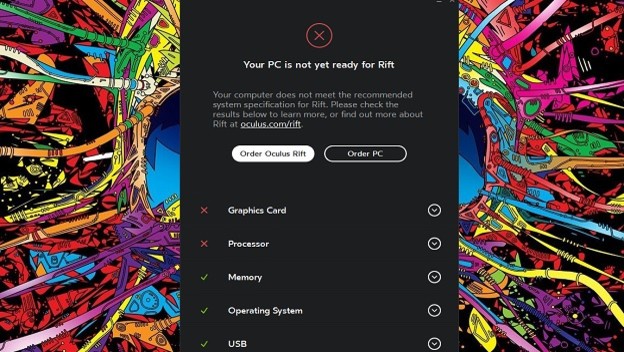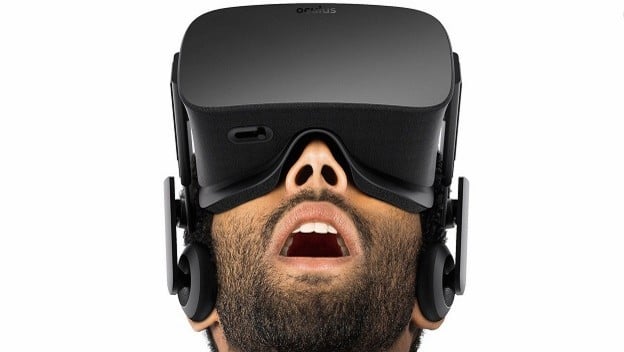This time yesterday I had a vision for what I’d be writing about today. This is how things were going to go down: Sony was going to kill it during its CES presser, revealing the release date and pricing for PlayStation VR along with some new tech demos and bundle options. The price was going to be fair, maybe $350, and I would write all about how the pressure was mounting on Oculus to price the Rift competitively. “Wouldn’t it be smart of Sony,” thought I, “to reveal the PlayStation VR first so that everybody would be talking about it? They could set the bar for pricing and that way, if the Oculus Rift is more expensive, PlayStation VR will be the more appealing option.”
Well, things didn’t exactly turn out like I expected. We didn’t hear anything about the PlayStation VR, and today, it was Oculus VR who set the bar for pricing with its Oculus Rift. PlayStation VR needed that exposure; Oculus is still the household name, if for no other reason because Facebook bought Oculus VR for an impressive sum and made headlines. Now, I’m starting to think Sony can capitalize on this. Although things didn’t go like I envisioned, they still turned out better than expected for the PlayStation VR. Why is that, you may ask?
To be perfectly frank, it’s because the Oculus Rift is obscenely expensive. If you want to head on over to shop.oculus.com you can pre-order yours for a whopping $600. I don’t think anyone really thought we were going to get away with a $299 price tag, but we certainly didn’t expect it to cost this much. Please hear me out: I’m writing this article as an advocate for VR generally, not as a PlayStation fanboy. I want the Rift to succeed and I understand that it was designed to be the best, not the most affordable. I just don’t think the market has barriers to entry that justify such a premium price point right off the bat. Sony, Valve, HTC, and Samsung all have stakes in the game, and Samsung’s HMD is already available for a hundred bucks (assuming you have a compatible Galaxy device).
But it’s Sony that’s positioned to take an early lead in the VR game this year. Just consider the install base to whom the PlayStation VR will appeal compared to the number of people who have PCs capable of powering the Rift and running the software. How many people do you know, dear reader, with Rift-ready PCs? If you’re in the lucky minority you can maybe count yourself and a few others, but how many of you know someone with a PS4? If we were in a room together I’m assuming that all of you would be raising your hand. We’re talking about 36 million (and that number is still rising) people who have the hardware needed to use PS VR exactly how it was meant to be used.

When I built my gaming PC years ago, I had about a $1000 to mess around with, and I ended up spending a little more than that. To the layman that may sound like a lot of money, but power users will spend that much on a APU / GPU combo alone. I ended up opting for a more modest CPU, an i5 2400, and a capable GPU: an Nvidia GeForce GTX 560 Ti. The 560 Ti, even though it’s a bit dated now, is a great GPU; it’ll still cost you about $250. Pretty much any game from the last generation I can run at the highest settings with silky smooth framerates. If you saw The Witcher 2 running on my PC you’d probably assume that it could handle the Rift, if nothing else for simpler games. I’ll let the above screen cap speak for itself.
That’s the biggest issue facing Oculus VR this year, and the most prohibitive restriction that will keep people like me and you from experiencing it. $600 hurts, but maybe I could swing it if I didn’t have to also budget in upgrading my graphics card and processor, which will likely hike the price up to $1000 when it’s all said and done. PlayStation VR will be priced much more modestly. I can say that with confidence because Shuei Yoshida suggested that they weren’t pricing the hardware to make money; they expect to make money from the software once everyone owns a PS VR, and that’s why Sony is going to win in 2016. Even if PS VR ends up being $500, which I highly doubt, we know that it will ship with an external processor to do a lot of the heavy lifting, and the games will be thoroughly optimized for the hardware we own. The ball is in Sony’s court now, and I’m waiting for a slam dunk announcement sometime very soon.
